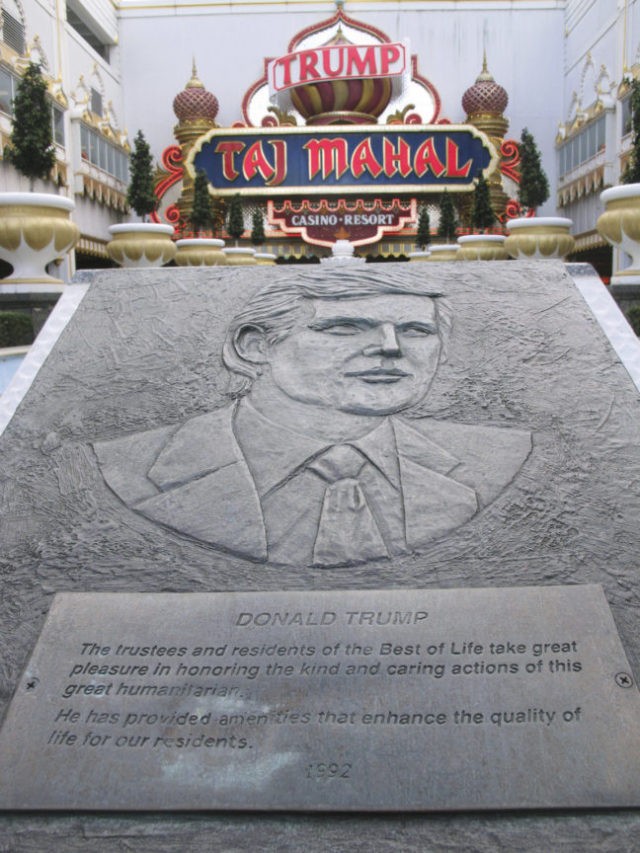In Donald Trump’s old gambling houses, no player doubled down on a six. In Donald Trump’s White House, the president looks to double down on his soft hand in Afghanistan.
That’s a bad bet.
The United States began bombing Afghanistan sixteen years ago this October. The mission—to kill those who killed Americans on 9/11 and uproot from power those who gave them safe harbor—meshed neatly with parochial concerns of national interest and broader concerns of justice. We overthrew the Taliban and killed Osama bin Laden. We won. But we stayed, which, six years after the death of bin Laden, makes about as much sense as fighting World War II in 1951, long after the arrival of Fat Man and Little Boy and the departure of Funny Mustache Guy made the point moot.
George W. Bush, who stood before a “Mission Accomplished” banner in 2003 on an aircraft carrier that had just returned from Iraq, strangely never declared victory in Afghanistan. Neither did Barack Obama. Donald Trump, given the opportunity to end a war, instead expands it. The Stan Evansism, “Too many conservatives come to Washington denouncing it as a cesspool and wind up thinking it is a hot tub,” applies here.
But Donald Trump wins no fans among his interventionist detractors in losing the ideals of caution that helped put him in the White House. Normal chatter about “growing in office” does not apply to a man synonymous with Lucifer among people who long ago discarded belief in the genuine article with the horns and the Van Dyke beard only to a short time ago embrace a belief in a devil sporting an endless sweep of dirty-blond hair. The people who hate Donald Trump will never like Donald Trump. Everyone gets this but the president.
The Soviet Union spent merely a decade in Afghanistan. Everyone outside of Russia, and many within it, regarded it as a quagmire. Within a year of their belated withdrawal, the Evil Empire lost its empire in Eastern Europe. Within three years, the Soviet Union collapsed. Is it too cliched to quote Santayana here?
“We are not nation-building again,” Trump insisted in his speech. “We are killing terrorists.” BrezhnevAndropovChernenkoGorbachev likely said something similar.
Trump seeks to increase troop levels by 4,000 in a country only tangentially connected to any vital national interest (in a literal sense, it borders Iran and Pakistan). This ups our ante to 12,000 or so men and women many years after the situation demanded we leave the table. But like so many degenerate gamblers at Trump’s old casinos, the foreign policy establishment cannot conceive of walking away. It’s not their money (or lives) on the line, after all.
Their gambling habits resemble Pete Rose, not Kenny Rogers.
As the Washington Post points out, Trump’s announcement doesn’t exactly make for a flip-flop. True, Trump inveighed against the American presence in the Central Asian country for years. But during the campaign he begrudgingly noted that he, as president, may need to keep Americans on the ground for years. But this, along with the strikes in Syria and chest-thumping over North Korea and Venezuela, betrays the overall America First vibe of the campaign rhetoric that signaled an about-face from the intervention-happy policies of recent presidents from both parties.
The president said many of the right things in his speech. But his words do not match his announced actions.
He maintains that “victory will have a clear definition” but admits that “it is up to the people of Afghanistan … to achieve an everlasting peace.” “We cannot repeat in Afghanistan the mistake our leaders made in Iraq,” he says in one breath, while using most of his other breaths to argue for a war with an end—presumably, there is an end—dependent on objectives outside of the control of the American armed forces. He speaks of the bad “consequences of a rapid exit” a few lines after acknowledging Afghanistan as “the longest war in American history” (What would constitute a protracted exit in the commander-in-chief’s mind?). The president claims “we will not talk about numbers of troops” after “senior officials” told Fox News and other outlets that he approved sending 4,000 more troops to Afghanistan. He knows what we want to hear but does not do what we want him to do.
“I was given a bad and very complex hand,” the president insists. But there’s nothing complex about a bad hand.
You don’t double down.

COMMENTS
Please let us know if you're having issues with commenting.